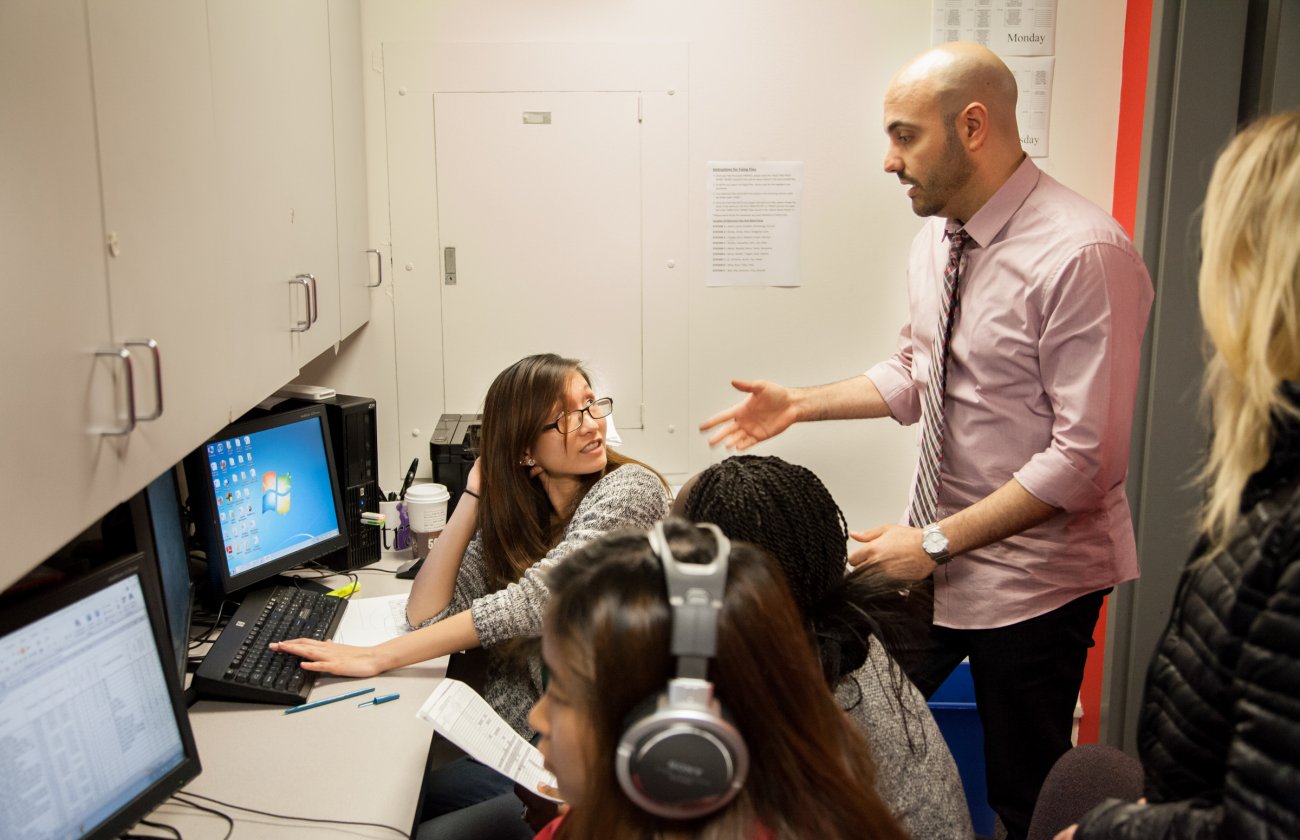This story focuses on the work of students in USC Annenberg's Specialized Journalism master's degree programs. To learn more about the programs, click here.
By Laura Nelson
Student Writer
The world may be a broken, violent, difficult place, but it's still ours.
That was the message world-renowned musician Manu Chao (pictured, above left on left) sent Monday night during a 90-minute talk and solo performance in front of an auditorium full of students from local universities and high schools at USC Annenberg.
The topics of conversation between the cross-generational, multicultural singer Chao and Communication and Journalism professor Josh Kun (above left on right) ranged from where inspiration comes from to what it means to live and work in a global society. The talk was part of the USC Annenberg Distinguished Lecture Series on Latin American Arts and Culture.
Chao's career began in the 1980s when he started and led multiracial French band Mano Negra. His solo career has since taken off, and he's built a reputation as a left-leaning globalist with passionate opinions about immigration, drugs and politics.
"Talking about countries and borders is mortally stupid," Chao said. "There's only one earth, and nobody's going to be saved if we don't resolve our problems globally."
Chao sings in Italian, French, Spanish, Arabic, Portuguese, Galician and English, as well as a variety of other words in other languages.
The government of Earth is actually a dictatorship of money, Chao said. He said the world isn't run by democracies, industrialized countries or politicians, but the cash that feeds hungry families and makes businesses run.

"Politik need ignorance, politik need lies," Chao sang, as members of the audience clapped and hummed along.
Money controls everything from healthcare to immigration, Chao said. He said agricultural and factory-based business in industrialized countries only make money because they can pay the youth of the third world less-than-legal wages, which is why all countries should open their borders.
"The rulers of tomorrow are the youth of today," Chao said. "The industrialized world is aging, we need youth and the youth are in the third world."
To emphasize his point, he played and sang "Bienvenida a Tijuana," one of his best-known songs, from the 2000 album Clandestino. The song is in Spanish and deals with the issue of immigration and opportunity across the border.
But despite his cynicism toward politics and capitalism, Chao said he still votes in memory of his grandfather, who was sentenced to death in Cuba for fighting for the right to vote.
"We make the vote utile — the useful vote — and that's not healthy democracy," Chao said, saying he couldn't remember the last time he'd picked a candidate he liked, rather than the "least worst man" on the ticket. "Democracy is sick."
Chao proposed a borderless society, where all communities and cultures can live and grow together. He said if the world can't learn to work together, everyone will eventually kill each other.
But Kun pressed through Chao's cynicism, insisting that despite his tales of "infinite sadness, there's a sense of a new day and a new hope on the way." He reiterated that optimism by showing a video clip of Chao's song "Blood and Fire" from a recent concert, showing people dancing with abandon as lights flashed and music pounded around them.
Chao smiled.
"I think we have to find a place where all communities join and try to live together," Chao said. "Our show is a little like that."



